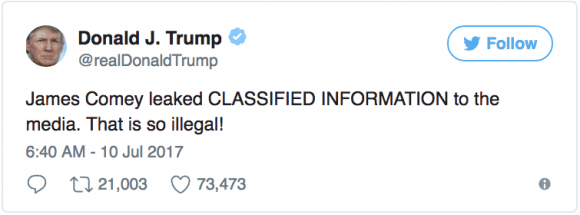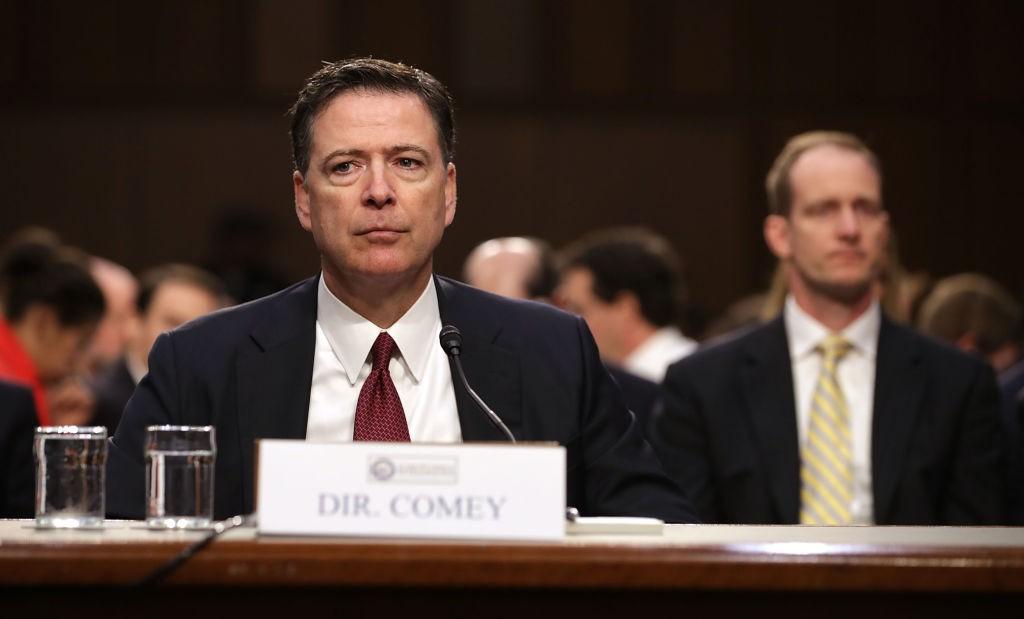President Donald Trump has reacted to a Hill story that cites multiple sources finding that former FBI Director James Comey took classified government documents with him when he left the bureau.
“James Comey leaked CLASSIFIED INFORMATION to the media. That is so illegal!,” tweeted Trump on Monday, July 10, after the story had begun to spread and was picked up by Fox News.

The story from The Hill, citing officials familiar with the Comey memos, reported that four of the seven memos Comey created were determined to have contained classified information.
If true, it could mean Comey violated security protocol and the FBI policies regarding the documents.
Comey created the memos following his private conversations with President Trump.
According to the FBI’s employment agreement, it should have been clear to Comey the memos were all government documents and that such documents must be surrendered upon termination.
“All information acquired by me in connection with my official duties with the FBI and all official material to which I have access remain the property of the United States of America. I will surrender upon demand by the FBI, or upon my separation from the FBI, all materials containing FBI information in my possession,” reads the agreement.
However, Trump’s tweet does not indicate if he is reacting solely to The Hill story, which does not verify that the memo Comey has confirmed to have leaked to the media through a friend is among the four deemed classified or confidential.
That friend, Columbia University Law School professor Daniel Richman, told CNN on Monday that none of the the memos he received were marked “classified.”
It is also not clear how many of his memos, or what information, Comey leaked to various sources.
According to Fox News the New York Times published 10 stories dating back to Jan. 10 that are sourced to anonymous FBI or Department of Justice officials “that either paint Comey in a positive light or push a message he was unable to personally disclose.”
The Hill also reported that it was unclear whether the classification was applied to the memo before or after it was shared.
It is unlikely the documents were assigned the classification before being shared, however, because Comey has maintained there were his personal memos.
That claim also violates FBI protocol that required such memos be formally recorded.
That protocol outlines how FBI staff are to handle ethical issues like the one Comey said he encountered.





